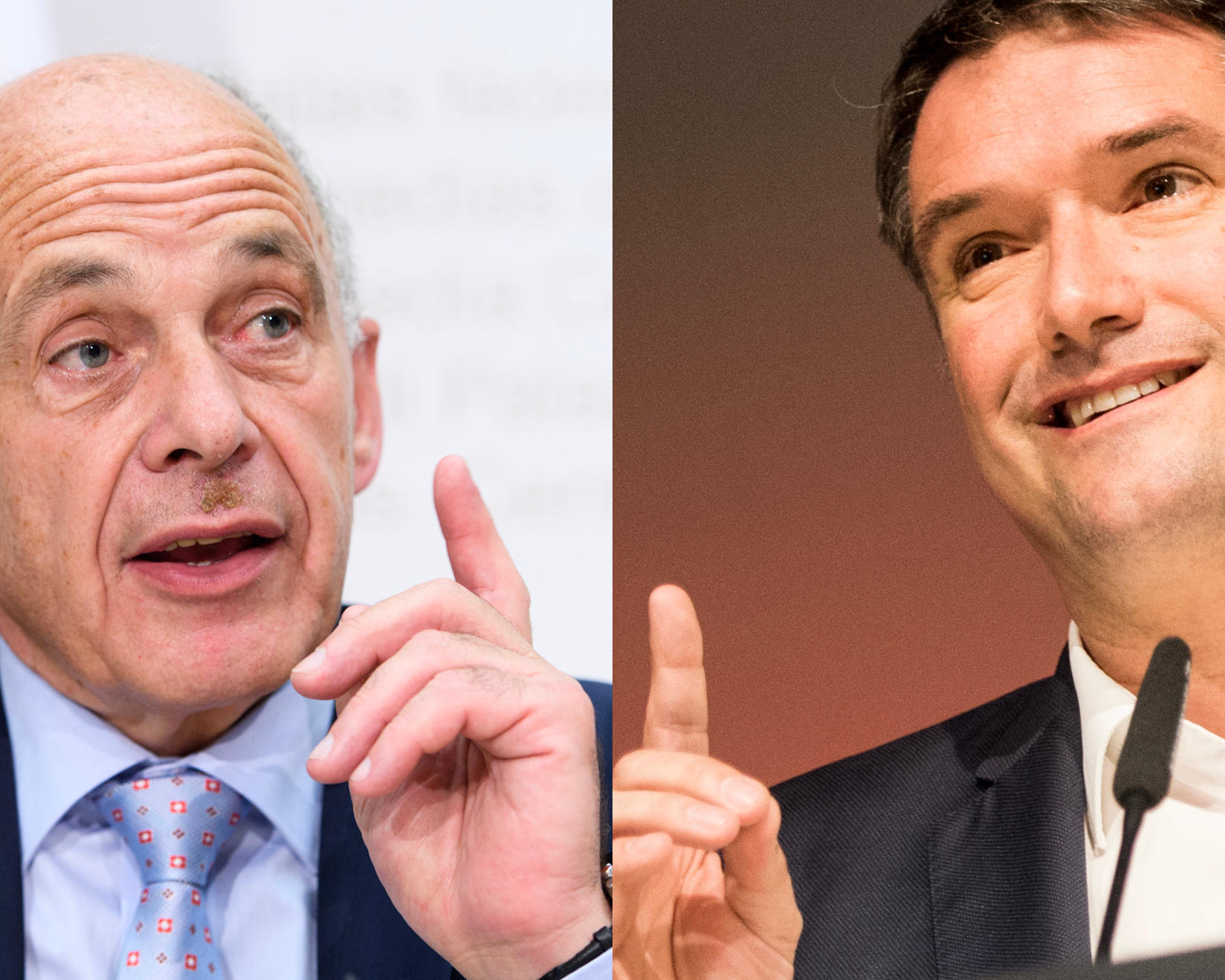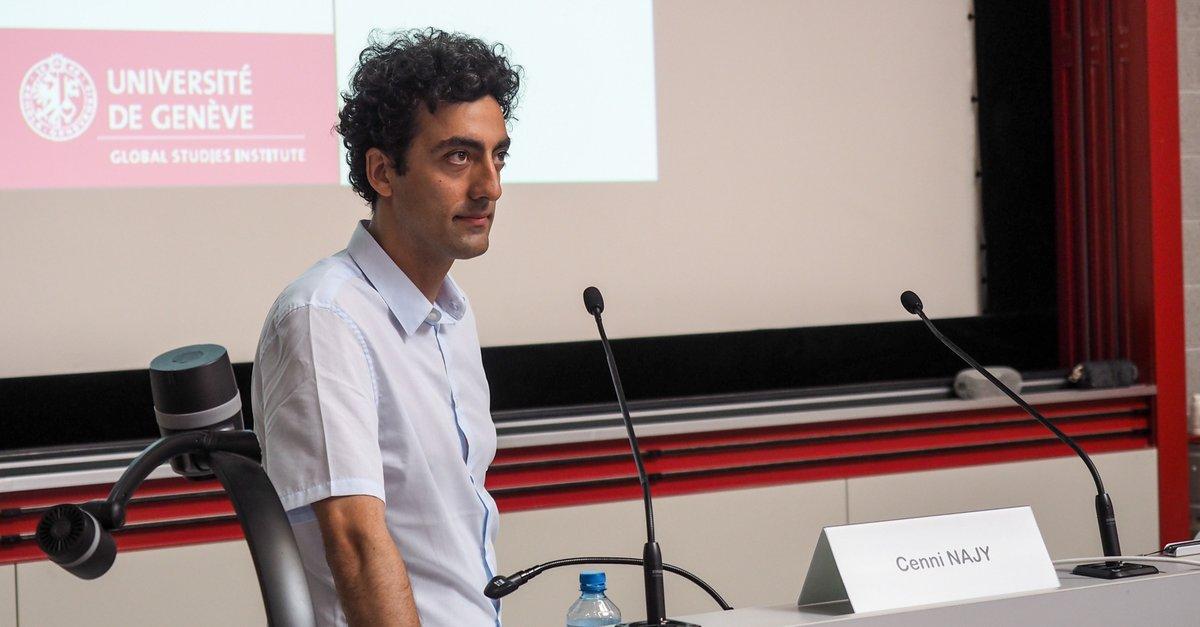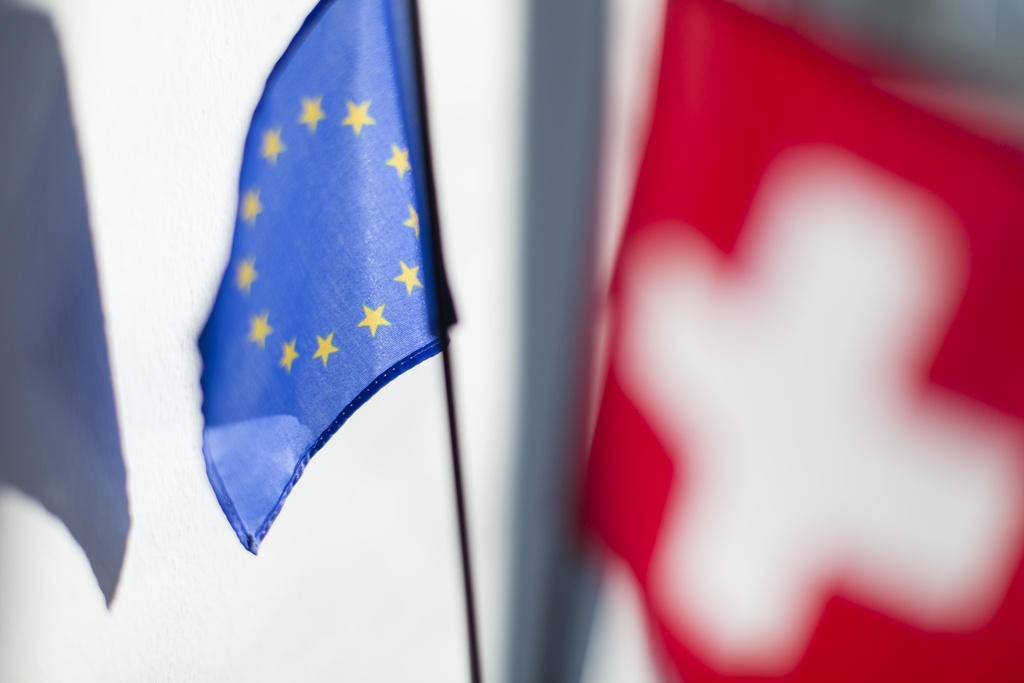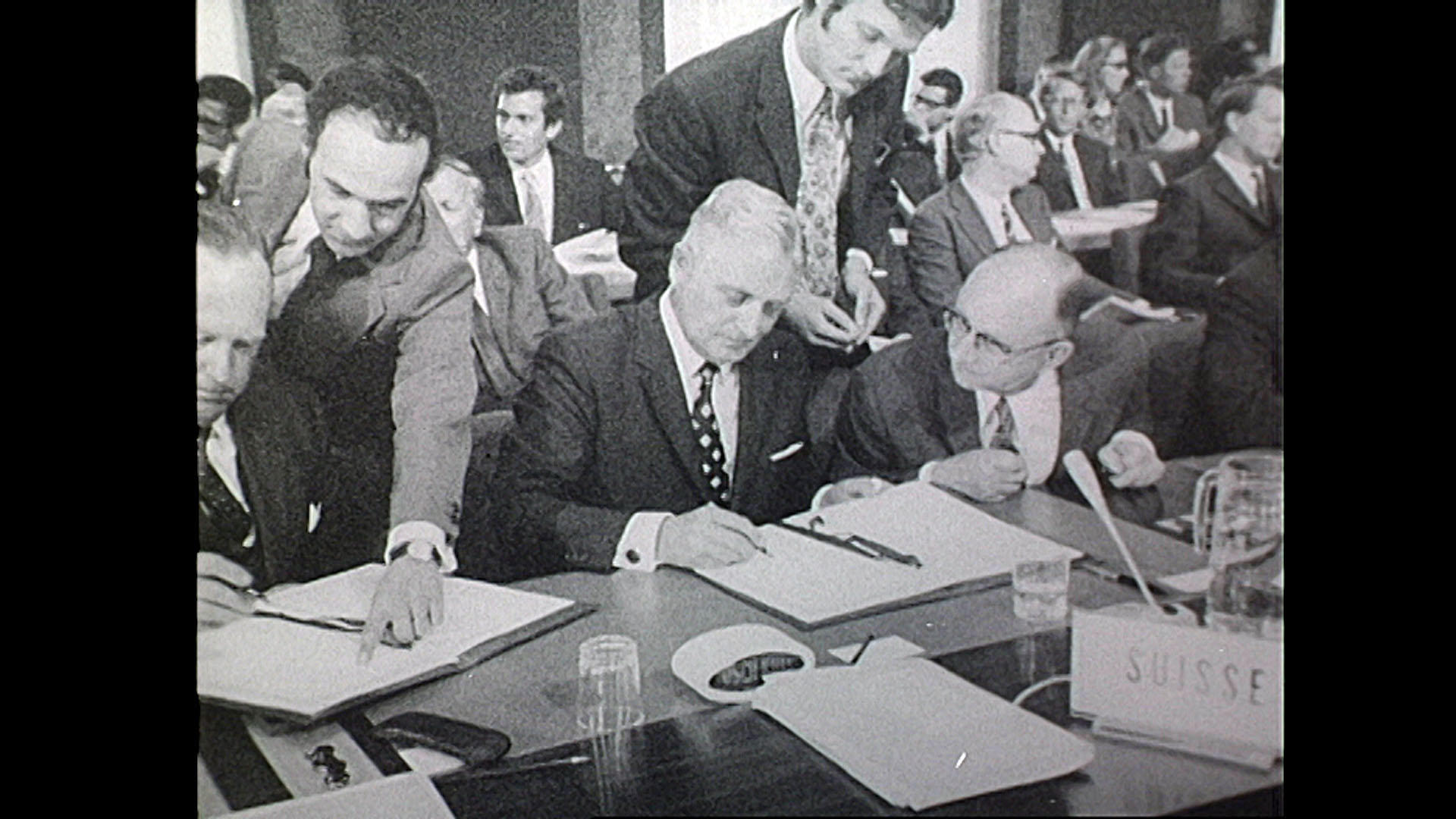
‘The EU will not renegotiate the framework treaty with Switzerland’

As the signs within Switzerland increasingly suggest that a framework agreement with the European Union is heading for failure, a political analyst warns that Brussels will not budge and will not return to the deal, which aims to determine the two parties’ long-term relations.
Is the framework deal heading for a premature death? Recent comments by several top Swiss politicians suggest so. “We need to renegotiate significant points for the deal to have a chance of being accepted – that’s my view,” said Ueli Maurer of the conservative right, anti-EU Swiss People’s Party as he took on the rotating Swiss presidency for 2019.
These comments generated considerable reaction, although the government has yet to take a position and is currently carrying out a public consultation on the agreement proposed by the European Union in December.

In the meantime, Christian Levrat, president of the leftwing Social Democratic Party, has called for talks with the EU to be reopened. “The institutional accord currently under consultation is dead. It has absolutely no chance of either winning a majority or getting over the hurdle of a people’s vote without the support of the Social Democrats,” he said.
Cenni NajyExternal link, a researcher and expert on European issues at the University of Geneva and thinktank Foraus, tells swissinfo.ch that while there’s a lack of political will in Switzerland to reach an agreement, there’s also scant chance of Brussels easing its stance.
swissinfo.ch: Ueli Maurer’s comments were like a political hand grenade. Why did he make them when the consultation period had barely begun?
Cenni Najy: He probably wanted to make a gesture to People’s Party voters in what is an election year. But his comments clearly contradict the consultation decided by the Federal Council (government) in December. Not only does his statement go against the principle of collegiality which is at the heart of Swiss government, but it also undermines Switzerland’s credibility when it comes to the EU.
By putting off signing the treaty in order to consult those concerned, Switzerland managed to convince the EU that it was acting in good faith, gaining in return an additional six months’ access for the Swiss stock exchange to EU markets. After Maurer’s comments, Brussels will deduce it was just a means of procrastinating and buying a bit of time.
swissinfo.ch: But isn’t Maurer right to insist on getting a better deal, given the general rejection the treaty has received in Switzerland?
C.J.: Look at the evidence: the deal presented in December will not be renegotiated by Brussels. This was underlined in a December letter to Maurer from Donald Tusk [president of the European Council] and Jean-Claude Juncker [president of the European Commission], which talks of a “definitive proposal”.
There’s no reason for Brussels to be more conciliatory with Switzerland than with Britain, which hasn’t had the slightest opportunity to renegotiate its deal on leaving the EU. What’s more, as far as I’m aware, there’s no precedent for this type of treaty which, once finalised, would have to then be renegotiated on the request of a third country.

More
Framing the terms for future Swiss-EU relations
swissinfo.ch: Is the treaty currently on the table really as detrimental to Switzerland as many Swiss politicians claim?
C.J.: This treaty is viewed uniquely through Swiss glasses. The EU has also made a fair amount of concessions, but people struggle to see that in Switzerland. Initially, the EU wanted to abrogate all the accompanying measures on the free movement of people that weren’t EU-compatible. In the final agreement, the wording is of reform and not abrogation.

More
What is this EU framework deal?
swissinfo.ch: All the same, couldn’t the EU concede a bit on certain issues very close to Swiss hearts?
C.J.: It’s up to certain politicians and other interested parties to determine whether these concessions are enough. But beyond talks on technical details – notably on reducing from eight days to four the notice that foreign companies have to give of their intention to operate in Switzerland [so the Swiss authorities can check whether domestic wage protection measures are being observed] – I can’t see any real political will in Switzerland to sign an agreement.
A reform of the accompanying measures could for example be partially compensated for by an extension of the collective employment agreementsExternal link. However, the two centre-right parties, the Radical-Liberals and the Christian Democrats, don’t seem to be in any rush to present a compromise that’s acceptable to the left and the unions.
swissinfo.ch: What will happen if the Swiss reject the framework agreement?
C.J.: The decision should be taken between May and July, that is, in the middle of the campaign for the parliamentary elections taking place in October. The first retaliatory step by the EU will most likely be the non-renewal of stock market equivalence. The European Commission could then decide to end Swiss participation in the European research programmeExternal link.
Another possible lever is that the EU could refuse to implement the technical barriers to trade agreementExternal link, one of the most important treaties of the first set of bilateral treatiesExternal link [signed between Switzerland and the EU]. These sanctions would not be catastrophic for the Swiss economy, but they would have non-negligible negative effects in the sectors concerned.
After that, the most likely scenario is that everything starts from scratch. But that will be complicated. The European Commission and the European Parliament will be completely renewed this year and there’s no guarantee at all that the new European leaders will have a great desire to pick up the work left by their predecessors.

More
Swiss-EU relations: the key milestones
Switzerland-EU: so near and yet so far
Sitting squarely in the middle of Europe, Switzerland lives, trades, and interacts closely with EU countries, even as it refuses to become part of the bloc.
Since a free trade agreement signed in 1972 and the popular vote of 1992 to join the European Economic Area, Switzerland and the EU have organised relations on a bilateral level; over 20 large sectoral agreements, as well as more than 100 smaller deals, have been signed with Brussels.
Today, the future of this bilateral track depends on an agreement on institutional questions. This new framework agreement, unveiled in December 2018, aims to regulate the interpretation and implementation of the bilateral agreements, as well as future relations between Bern and Brussels.
While the EU is pushing for the signature of this agreement after five years of intense negotiations, the Swiss government has dragged its heels and has submitted the “deal” made with Brussels to a large, informal, public consultation with those concerned.
Translated from French by Thomas Stephens, swissinfo.ch

In compliance with the JTI standards
More: SWI swissinfo.ch certified by the Journalism Trust Initiative
















![The four-metre-long painting "Sonntag der Bergbauern" [Sunday of the Mountain Farmers, 1923-24/26] had to be removed by a crane from the German Chancellery in Berlin for the exhibition in Bern.](https://www.swissinfo.ch/content/wp-content/uploads/sites/13/2025/12/01_Pressebild_KirchnerxKirchner.jpg?ver=cb688ed5)















You can find an overview of ongoing debates with our journalists here . Please join us!
If you want to start a conversation about a topic raised in this article or want to report factual errors, email us at english@swissinfo.ch.